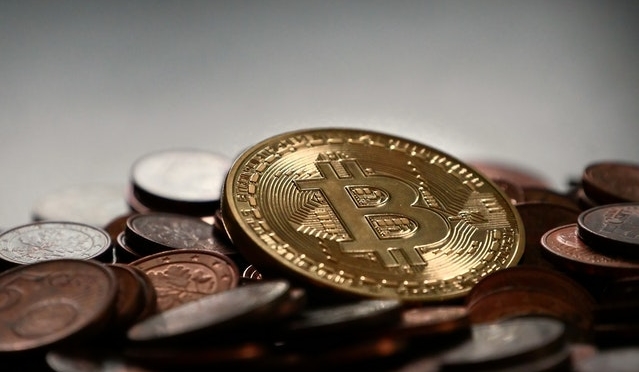An insight into blockchain
- By White Label
- Posted Date April 08, 2019 11:12:13 am

“Blockchain” and “Bitcoin”, both are the most trending and media’s favorite terms these days and I am sure you would have heard of it as well. People from technical as well as non-technical worlds keep asking and discussing these buzzwords of the year. Is blockchain the new internet? How is it better than the traditional method? Who owns blockchain? The same kind of questions arise everywhere in the world, and with that blockchain has taken the world by storm. In this article, I’ll try to give you a quick insight into blockchain and what it is all about.
Let’s start with the very basic. The most hyped topic since 2K17 has been blockchain, but what really is it? In simple terms, blockchain is a time-stamped series of data that is managed by a cluster of systems or computers not owned by any single particular entity. In other words, blockchain is a specific type of data structure. The author of Blockchain Revolution, Don & Alex Tapscott said, “The blockchain is an incorruptible digital ledger of economic transactions that can be programmed to record not just financial transactions but virtually everything of value.” The special thing about blockchain network is that it has no central authority, Since it’s a shared and immutable ledger, there is a no monopoly in blockchain network, you can even say that it’s a great example of the democratized system. In 2008, someone used the name Satoshi Nakamoto and mailed the bitcoin white paper to a cryptographic mailing list. Satoshi Nakamoto is the name used by an unknown person or group of persons who developed it. And it has been almost ten years that Satoshi released the first bitcoin whitepaper and Satoshi Nakamoto defines bitcoin as “a peer-to-peer electronic cash system”. It carries some infrastructure cost but has no transaction cost associated with it.
The blocks of data are secured and bound to each other using cryptographic principles and cryptography is a process which encrypts and secures the data communication to avert third parties from reading private messages. The network of blockchain has no central authority. The blockchain is an easy but at the same time ingenious way of passing data from one entity to another in a fully automated and safe manner. But if we talk about the core, then blockchain is somehow similar to regular databases. It contains information on things that happened in the past but with unique attributes. The most important pillars of blockchain technology are as follows:
- Decentralization
- Transparency
- Immutability
These are the most important properties that have helped blockchain to gain success and fame all over the world. Blockchain was built from three technologies: Private key cryptography, P2P Network and Program (Blockchain protocol).
How does it work?
Now that we know what exactly blockchain is, the question arises how does it work? If we go through the blockchain design, then we’ll see that it is simple structure-wise and it’s this simple structure that makes the blockchain, invulnerable to data tampering. Typically, the blockchain data structure is managed by a peer-to-peer network, working hand to hand to solve tough and complex mathematical problems in order to validate new blocks. Once the data is recorded in any given block, it cannot be updated subsequently without making changes in all the subsequent blocks, which requires the confirmation of the majority of blocks in the network. By making use of the ‘Transaction Hash’ (Hashes are the long series of random strings used to track your transaction) or wallet address you can read the transaction history in the blockchain. This is the most important reason why blockchain technology is secure and not easy to hack.
Is it secure?
Speaking of security, In recent years, the security of personal data has failed to evolve and actually it has been deteriorating, and the security of the personal data is a human right and then if we are trusting blockchain at the very extent, then does this blockchain offer us that security? A ‘Big Yes’ is the answer to this question. The blockchain is innately secure because it uses cryptography principles to give individuals proprietorship of an address and the crypto assets associated with it, into and out of a combination of public and private keys. They are made up of different combinations of random numbers and letters. This resolves the issue of stolen identity as addresses. So basically, blockchain provides Z+ security to every individual user as it removes the weak and easily compromised online identities and passwords. Also, it is good to know that private keys are even more secure as they are considerably longer.
But why do we even need something this complex?
Is blockchain really really important? And if yes, then why? As we have mentioned earlier, the most important pillars of blockchain is its concept of decentralization and bringing your trust to a decentralized network is groundbreaking. Decentralized network means that there is no central point of failure, that means no middlemen. By middlemen, we mean supply chain checkers, banks, medical record companies and so on. “Transparency” is also a very important property of the blockchain network. All the transactions are public and freely visual, and virtually impossible to hide. So, this aspect provides better transparency for institutions and firms. With the democratic network, it provides no central authority. So in few words, blockchain technology provides us to have a decentralized, transparent and democratic solution. Through this, it completely removes third-party interferences. Also, the blockchain data structure is tamper-proof as changes made even in one block would require changes to be made in all the blocks.
This is just a taste of what blockchain actually is and how it is affecting us and what will be its impact in the near future. The blockchain is helping us in a various way. Its outstanding features provide more security and least or no dependency on the middle person. All, some or none of this may eventually come to pass, but the blockchain technology is fascinating and exciting.



